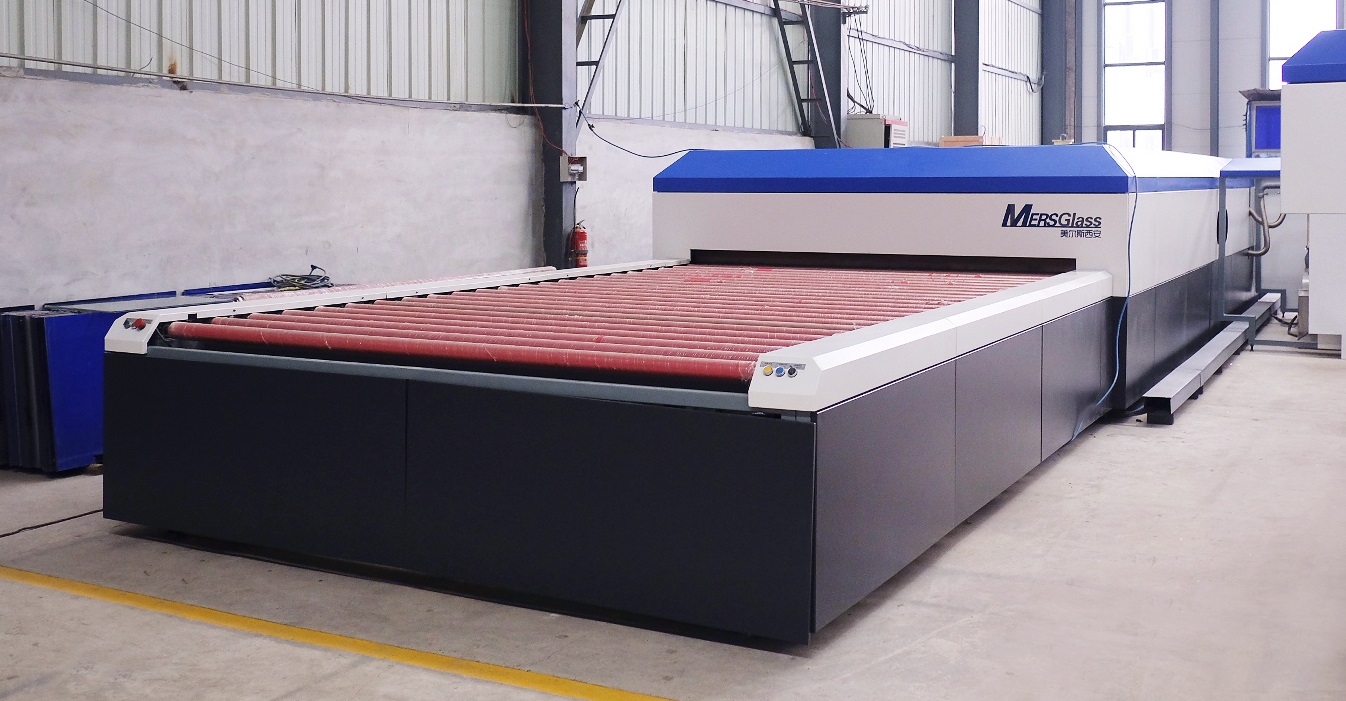Autoclave - free PVB Glass Laminating in Soundproofing Solutions: Quiet Spaces without Compromise
In the noisy world today, more people are seeking peace in quiet rooms. From our homes, office spaces or open areas, overexposure to noise can be a significant source of stress and distraction. Among the innovative ways this problem has been addressed is through the use of autoclave-free PVB glass laminating machine in soundproofing. The technology possesses a range of benefits that turn it into a game-changer in the design of quiet spaces.
Know About Autoclave-free PVB Glass Laminating machines
Traditional PVB glass laminating machines would normally require an autoclave, a gigantic, high-pressure vessel. But the autoclave-free pvb laminating machine did away with all of that. It uses another process to place a PVB (polyvinyl butyral) interlayer between two or more pieces of glass. This eliminates the high-pressure environment required in an autoclave, reducing the cost of production and the energy required.
PVB interlayer is of vital significance for soundproofing. It possesses very strong adhesive properties that firmly bind the glass layers together. It creates a composite material that works efficiently in terms of sound blocking waves. Non-autoclave laminated glass possesses a unique structure that will absorb and attenuate sound and prevent it from going through the glass.
Advantages of Soundproofing
One of the chief advantages of autoclave free PVB glass laminating machine in soundproofing usage is its superb performance in soundproofing. Both the PVB interlayer and glass layer can prevent the passage of noises drastically when combined together. For example, using non-autoclave PVB laminated glass to cover windows can successfully block out traffic sounds, alarms, and city noises effectively in urban cities. This allows for a more peaceful and quiet living or work environment for users.
Another advantage is its versatility. Non-autoclave PVB glass laminating machines are highly versatile and can be used in a very wide range of situations. It can be installed in a house, corporate office, hotels, and also in libraries and hospitals in open areas. The technology may be modified based on the sound insulation need of different environments. For example, in an extremely high-sound-insulation recording studio, a thicker interlayer of PVB and multi-layer glass can be used to create the best sound insulation effect.
Cost-effectiveness and Sustainability
Besides the soundproofing advantage, autoclave-free PVB glass laminating machines have cost and environmental benefits. Without the autoclave, manufacturers can save on equipment costs, energy usage, and maintenance charges. This, in turn, can lower production costs, which makes this technology accessible to more customers.
From the perspective of sustainability, the reduced energy consumption of an autoclave-free laminate machine is a significant advantage. It reduces the environmental impact of glass production. Further, laminated glass has a longer life and does not need to be replaced frequently, which reduces waste.
Installation and Maintenance
It is convenient to install non-autoclave PVB laminated glass. It may be installed by common window installation techniques, and thus it is convenient for installers and builders to utilize. However, proper installation is needed to attain the maximum soundproofing effect.
Non-autoclave PVB laminated glass is also simple to maintain. Washing regularly with a mild glass cleaner is usually sufficient to keep the glass in its optimal condition. The PVB interlayer is resistant to yellowing and degradation, so the glass will stay clear and soundproof in the long term.
Technological Innovation and Market Prospects
Along with the continuous improvement of the technology, the autoclave-free PVB glass laminating improves continually too. R&D personnel are investigating integrating smart materials with the PVB interlayer, such that not only will the glass have excellent sound insulation properties, but also it can adapt the sound insulation effect automatically according to the change in ambient noise. For example, when ambient sound increases drastically suddenly, the intelligent material in glass can amplify the noise barrier to ensure an acoustically clean and quiet atmosphere within.
In terms of the market, due to improvement in the living standards of humans and attention to healthy lifestyle, demand for safe living and working environments is on the rise globally. It has provided immense market opportunity to autoclave-free PVB glass laminate machine technology. Beyond the traditional building industry, auto and aviation sectors have also shown significant interest towards this technology. In automotive production, auto window glass made with this technology is able to effectively dampen noise inside the car and improve driving experience; in aviation, it helps achieve a quieter cabin environment and improve passenger comfort.
Conclusion
In summary, the autoclave-free PVB glass laminate machine offers a cost-effective and efficient way of availing quiet areas without sacrificing quality in soundproofing solutions. Its high soundproofing quality, flexibility, affordability, and eco-friendliness make the machine ideal for various applications. If you want to construct a quiet home environment or quiet working environment, this machine is what you need. And this machine will be increasingly popular. MERSGlass specializes in producing autoclave free glass laminate machines and has been servicing many customers. Potential customers are welcome to inquire.
-

Energy-Saving Autoclave Free Glass Laminating Machine: Eco-Friendly Lamination Solution
The energy-saving autoclave free glass laminating machine does not require an autoclave, reduces energy consumption without affecting the quality of the lamination, and provides an environmentally friendly solution for modern glass manufacturing.2025-07-18
-

Non - Autoclave PVB Glass Laminating Machines: Adapt to Diverse Glass Thickness & Sizes
This article introduces the advantages of non-autoclave PVB laminate machine in adapting to different glass thicknesses and sizes, and elaborates on the equipment characteristics, operation convenience and other aspects to help you fully understand the practicality of this product.2025-07-05
-

Non Autoclave Glass Lamination Machines: Maximize Profits with Low - Cost, High - Efficiency Production
Let's take a look at how the machines work, their main advantages, and why they're the perfect choice for modern glass manufacturing.2025-07-03
-

Autoclave-Free Glass Laminating Machine: Portable Solution for On-Site Lamination
Here, the article explores the characteristics, operational principles and varied uses of this innovative equipment, highlighting its benefits in addressing the increasing need for field lamination.2025-06-19









